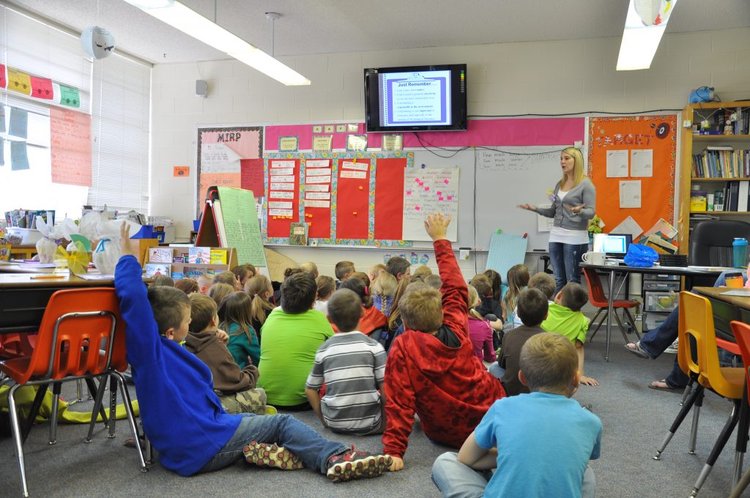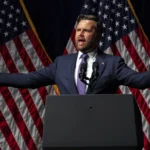Part 2: Superintendent of Public Instruction Candidate Megan Degenfelder Details Her Stances on Hot-Button Educational Issues
The Republican nominee shares her views on Critical Race Theory, trans students’ participation in sports and more
- Published In: Other News & Features
- Last Updated: Sep 10, 2022

By Jacob Gardenswartz
Special to the Wyoming Truth
In this increasingly politically polarized moment, nearly every facet of American society engenders some controversy, and education in Wyoming is no exception.
Last month, Megan Degenfelder narrowly defeated incumbent Brian Schroeder in the Republican primary race for Wyoming Superintendent of Public Instruction. She will face Democrat Sergio Maldonado in the November general election.
The Wyoming Truth spoke with Degenfelder about her approach to the position, with excerpts of that conversation published yesterday. What follows are excerpts from the interview concerning hot-button educational issues and what her narrow primary victory could mean for her campaign.

One topic that comes up in conversations about education is Critical Race Theory, which isn’t actually taught in Wyoming schools. How do you balance parents’ desire to protect their kids from sensitive topics with the reality that sometimes certain parts of history are difficult to discuss?
Degenfelder: Our kids all deserve an education that is factual and well-rounded. They deserve to learn about history and all those specifics, but when we start to see political ideology being merged into the classroom, that’s when we have a problem. The greatest thing here is transparency, making sure that we’re all on the same page and we’re working together — districts and education stakeholders in the community — really working to make sure that our parents are able to access that information, they know what’s happening in their classroom and they have a means to express their views if they don’t agree with what’s going on.
That’s why I really want to focus on transparency, and look at having an education transparency website that’s housed at the department where we can make sure that the great things that are happening in our classrooms are accessible.
What happens if a parent disagrees with a book that’s being taught in the classroom? How should that be resolved?
Degenfelder: When we’re talking about explicit material in books, in our younger grades especially, they don’t need to be seeing that. Our kids should only be seeing a material which is appropriate to grade level. Now if a parent does have an objection to something that is appropriate to grade level, they should have an opportunity to opt out of that, to express their views to the school and to the district to address that. It really should be a local school board decision of what’s appropriate and what’s not. And so we want to make sure that’s transparent, and then it really falls to the local school districts at the end of the day to make that decision. But a parent should always have the opportunity to opt their kid out of that material.
The current superintendent made waves by opposing a USDA policy that requires schools to let students file complaints of discrimination based on sexuality and gender identity. How should schools respond to students who are questioning their gender identity?
Degenfelder: The crux of these conversations should really be at home between the parent and the child. I firmly believe that. But in our Wyoming schools, we’re able to make individual accommodations while still not impacting the larger student body, and that’s what we do in all of these situations.
The Wyoming Senate passed a measure that would have banned transgender student athletes from competing in women’s sports, but the bill failed to win introduction in the Wyoming House of Representatives. Is that a measure that you would support or oppose?
Degenfelder: I think it’s something that we need to be strategic on and look critically at, because we want to make sure that whatever decisions are within the legislature stand up in court. For me personally, I coach women’s rugby at the University of Wyoming, and safety is my number one concern for those girls. I don’t agree with having biological men play in those contact sports with women, just from my experience in rugby. But again, I think we work through these issues on an individual basis, and we do so in a manner that respects our Supreme Court decisions and do that in a way that works best for our state.
Your primary election was pretty close, coming down to 3,000 or so votes. What does that mean for you heading into the general election?
Degenfelder: We went into election day knowing that we did everything that we could in the election to come out with a victory. I said from the beginning that I could only control how hard I worked, and we worked incredibly hard. We had a grassroots effort from across the state. And that’s what was really impactful. We had hundreds of individual donors, 90% of which were based in Wyoming.
So I was just incredibly humbled by that broad grassroots support that we saw. I’m really excited to work hard into this general election, and to not let down on that momentum, and really make sure that we can be successful going into the general.
Is there anything else about your candidacy or background that voters should know?
Degenfelder: I come from a background of working in the private sector, as well as in education. And so something that’s really important to me is partnership with industry. You know, at the end of the day, we want to make sure that our kids are prepared for the workforce… We’re enhancing our internship availability, making sure that we have that career technical education available to our students — that’s something that I’m really passionate about moving forward.













